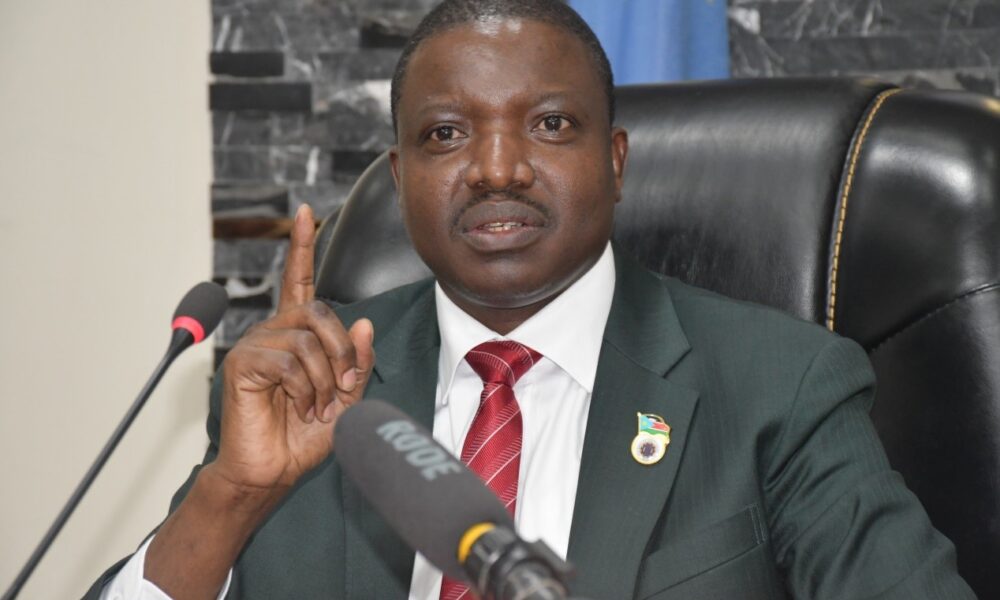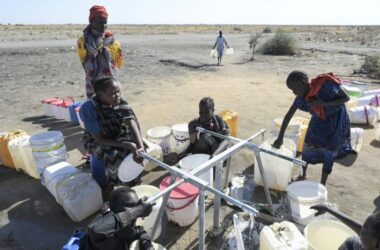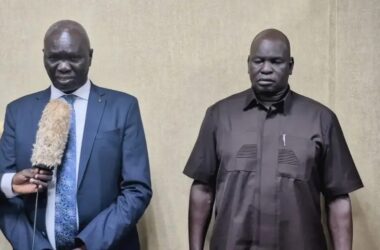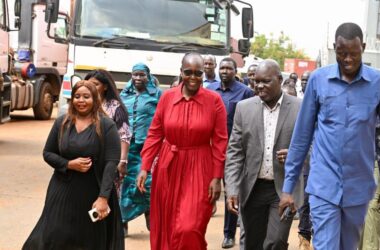By Bida Elly David
Governor of the Central Bank Dr. James Alic Garang, has stated that the country can’t ban the use of the US dollar, as it is the primary currency for foreign trade.
Garang made this assertion during a press conference held at his office on Friday.
Last year, the Bank of South Sudan issued a statement calling for the exclusive use of the South Sudanese pound across the country. However, the governor clarified that this order did not abolish the use of the dollar in the market.
“People need hard currency to go abroad and command baskets of goods, but if the source of the hard currency has been constrained, the demand will always be there,” Garang explained.
The governor stressed that South Sudan, in its current situation, requires dollars due to irregularities in the oil sector.
“What I want to say now is that auctioning the dollar remains the transparent and efficient system, but this does not mean that we will not review it tomorrow if there are other data systems out there.”
Garang argued that banning the dollar is not feasible, as South Sudan relies on imports for essential goods such as food, sugar, and tomatoes.
“We need food, we need sugar and tomatoes all from outside, now how can we ban the dollar from operation?”
The central bank governor acknowledged the depreciation of the local currency but affirmed that the bank will continue to fight inflation until the economy gains stability.
“We will continue to fight inflation and welcome suggestions, but for now, the dollar auction system will remain transparent,” he said.
Furthermore, Garang highlighted that there is no way for South Sudan to abolish the use of the dollar, as the country’s stagnant agricultural sector requires the hard currency.
“If we need to avoid the dollar in this country, we need another dollar to avoid it which means we need to produce. The president has always said we should embark on agriculture; without it, we will still need the dollar,” he said.
The central bank governor also noted that the dollar is not the sole driver of the ongoing inflation in the country.
“The dollar is the vehicle currency on what we need to transact, especially across the borders of South Sudan, so it is not the circular but the demand. People need it for transactions beyond the borders of South Sudan.”




